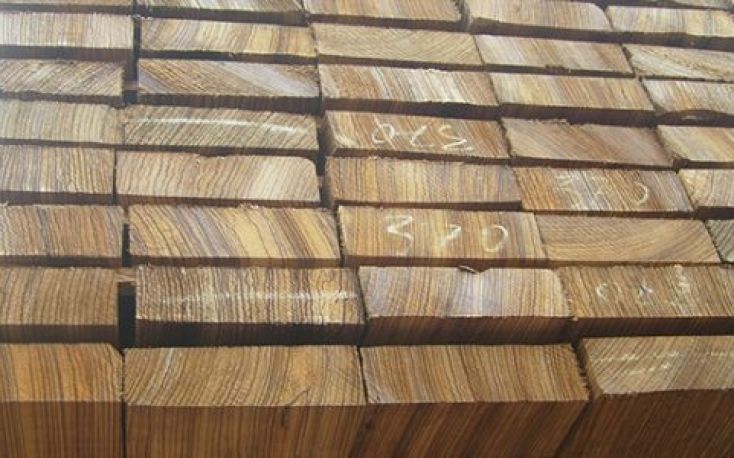Although the EU Timber Regulation (EUTR) has narrowed the supply base for tropical timber imported into the EU, traders in Belgium and the Netherlands strongly support the FLEGT regulatory approach – combining licensing with EUTR – as a platform to help rebuild confidence in tropical timber in the EU market.
FLEGT licensing is helping importers to comply with EUTR, while the forest sector reforms and new procedures implemented during the FLEGT VPA process form part of a positive narrative that now needs to be communicated more widely to buyers and procurement officials in the EU.
These were key messages of the latest European trade consultation, which targeted Belgian and Dutch traders, hosted by the FLEGT Independent Market Monitor (IMM).
The event held in the Belgian port of Antwerp formed part of a series of consultations to inform IMM work to assess market drivers and market impacts and perceptions of FLEGT. Similar consultations were held last year in France, Germany and the UK, and others are planned in Spain and Italy later in 2019.
An audience of 50 attended the event co-organised with Belgian and Dutch trade federations Fedustria and the VVNH. Delegates included timber importers and distributors, end-users, retailers and representatives from trade associations, EU Timber Regulation and FLEGT competent authorities (CAs) and government agencies.
Participants mainly came from Belgium and the Netherlands and operated in a wide variety of product areas including plywood, hardwood for interior fittings, such as mouldings, interior furniture and other manufactured goods, laminated components and exterior products, including decking, cladding, fencing and garden furniture.
Participating companies sourced from suppliers worldwide. Among those listed were Bolivia, Brazil, Cameroon, China, Congo, Gabon, Indonesia, Malaysia, Peru, Russia, Thailand, and Vietnam. Their customers included the construction sector, merchants and distributors, flooring, furniture, packaging and other manufacturers, and, in the case of retailer delegates, consumers.
Apart from the number and range of participants, the insights from the Antwerp consultation were made more relevant by recent tropical timber trade flow trends in the EU. The consultation was an opportunity to explore the views of traders playing an increasingly prominent role as gatekeepers for the wider European trade in tropical timbers.
Imports of tropical wood products into Belgium and the Netherlands have held up more strongly than most other EU countries following the economic crises in 2008 and 2009. In 2018, 38% of total EU imports of tropical timber primary products (logs, sawn, veneer, mouldings and plywood) were landed in Belgium and the Netherlands compared to 23% in 2004.
The agenda featured presentations on global trends in the tropical timber trade, and notably European trade with VPA countries, private and public sector timber procurement policy and the Dutch CA’s experience with FLEGT-licensed timber. Individual trade bodies and operators gave their perspectives on tropical timber trade developments, the FLEGT initiative and links to forest management certification.
Opening the consultation, IMM Lead Consultant Sarah Storck reported the results of the IMM 2018 trade survey which showed the EU timber sector has become quickly accustomed to the FLEGT licensing system. “In 2017 a significant minority of respondents had said it was more complex than undertaking due diligence under the EUTR. But in the 2018 survey only 1% of respondents still felt that, whereas the vast majority said it made importing easier”.
Commenting on the direct impacts of FLEGT-licensing and the EUTR on EU tropical timber imports, Ms. Storck said that the market introduction of FLEGT-licensed timber was felt to have had a small positive impact by EU trade respondents to the 2018 IMM survey.
At the same time, around 35% maintained that the EUTR had negatively impacted tropical timber imports (compared to 63% indicating no impact and 2% indicating a slight increase).
Nonetheless, according to Ms. Storck, trade representatives interviewed by IMM for the 2018 survey emphasised that they were supportive of the EUTR and saw it as an opportunity for the tropical timber trade in the medium and long-term – as long as it was effectively implemented.



Leave a Reply